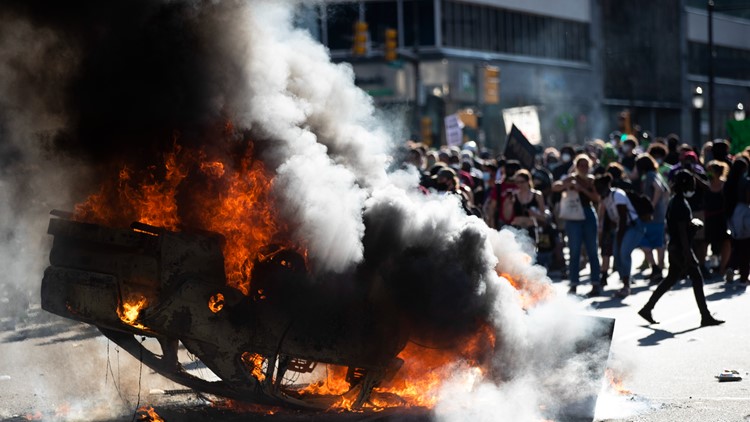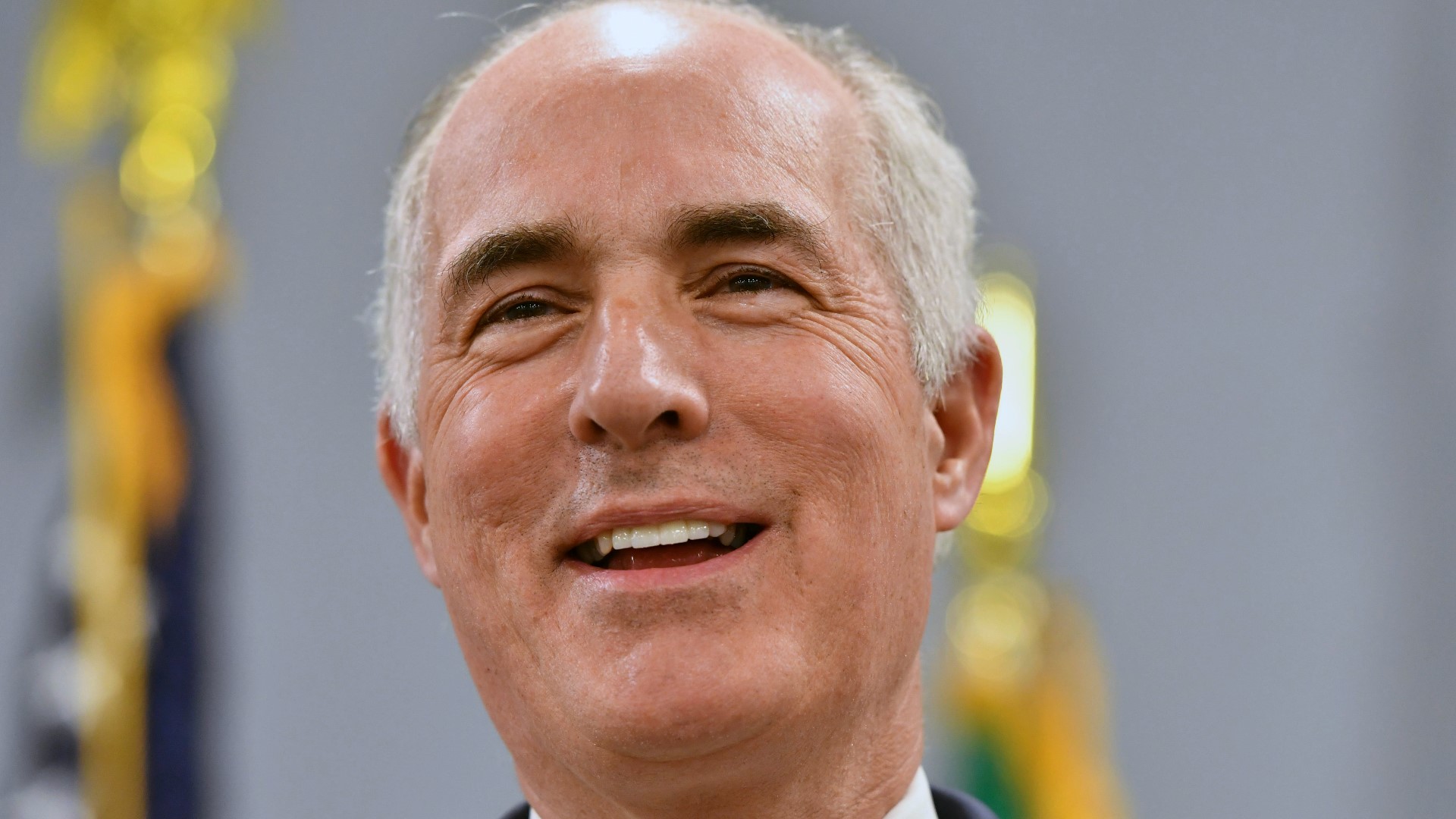PHILADELPHIA — The first of six people charged with setting fire to police vehicles in Philadelphia during the 2020 protests after the killing of George Floyd by Minneapolis police has been sentenced.
Ayoub Tabri, 25, was sentenced Monday to 364 days behind bars -- less time than he’s already served in custody, and short enough to avoid triggering deportation proceedings for the Moroccan immigrant.
Lawyers for Tabri, of Arlington, Va., said the green card holder has been in the U.S. since he was 6 years old. A longer sentence, which he and the others faced under the original arson charges that carried a minimum sentence of seven years in prison, could have sent him to a country where he knew no one and didn't speak the language, The Philadelphia Inquirer reported.
Former U.S. Attorney Bill McSwain had vowed to pursue the harsher arson charges against the six people arrested. After he left office last year, federal prosecutors worked out plea deals with a handful of those defendants, including Tabri and Lore-Elizabeth Blumenthal. Still, prosecutors argued for a longer sentence in court Monday.
Tabri pleaded guilty in March to one count of obstructing law enforcement during civil disorder, according to court records.
“The judge took into consideration the appropriate factors and imposed a just sentence,” Nancy MacEoin, a federal public defender representing Tabri, said Tuesday.
Once released, Tabri will serve three years probation and have to pay about $87,000 in restitution for the Pennsylvania State Police car destroyed after he and others threw lit road flares into the vehicle.
Blumenthal, who pleaded guilty to two counts of obstructing law enforcement during civil disorder related to throwing a piece of burning police barrier at a police car, is scheduled to be sentenced later this month. Police used photos from the protest and social media profiles to find Blumenthal, 35, from Jenkintown, who was wearing a distinctive shirt investigators tracked down on Etsy and had a recognizable tattoo.
Attorney Paul Hetznecker declined to comment on the specifics of Blumenthal's case, but said the shift in prosecution against defendants facing charges from the protests is important.
“This reflects an evolution in the thinking of prosecutors in the justice department about these cases and putting them in the appropriate context," Hetznecker said. “These cases occurred at an important flashpoint in our history, and they should be viewed that way."
The case against Blumenthal was widely criticized by civil rights advocates, who worried it was a signal of policies promoting heavier social media and internet surveillance of dissidents. McSwain's initial charges also became a symbol of federal officials' zeal to pursue stiff penalties for those arrested during the nationwide protests.
Another defendant is scheduled for a plea hearing to lesser charges later this month. The three others charged in the police vehicle fires are slated to go to trial later this year.



